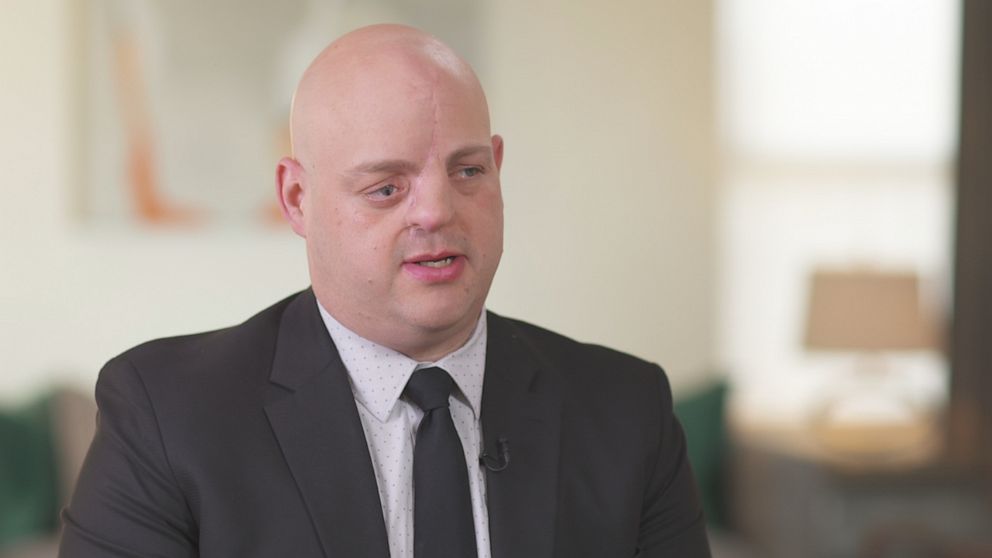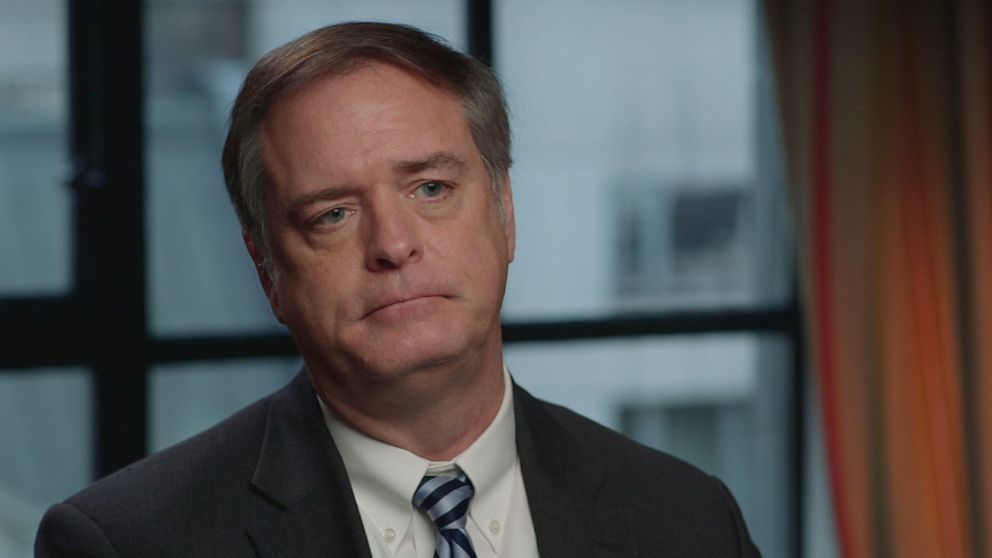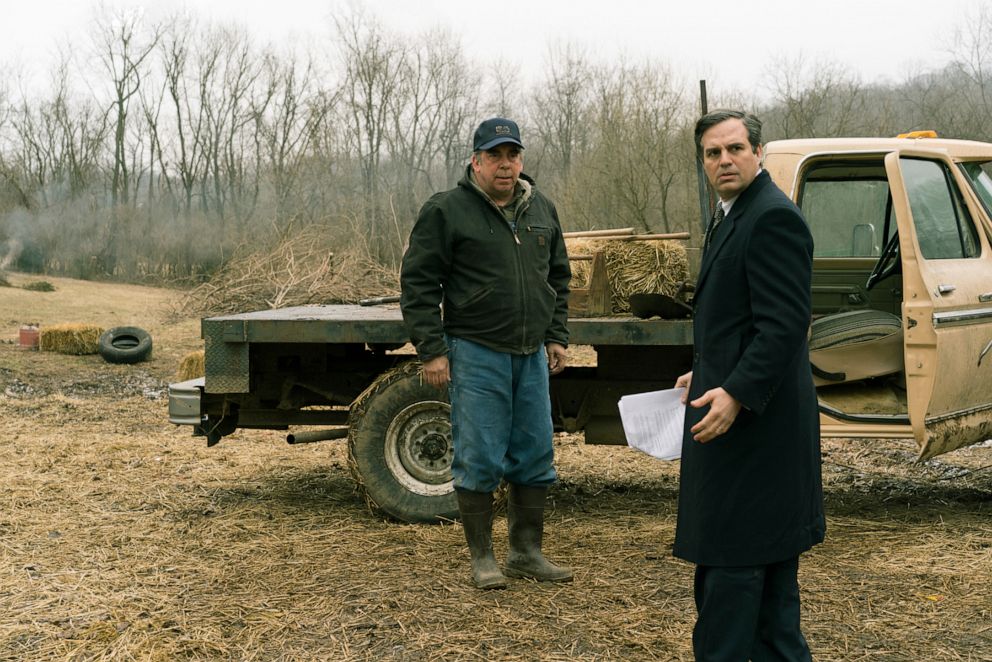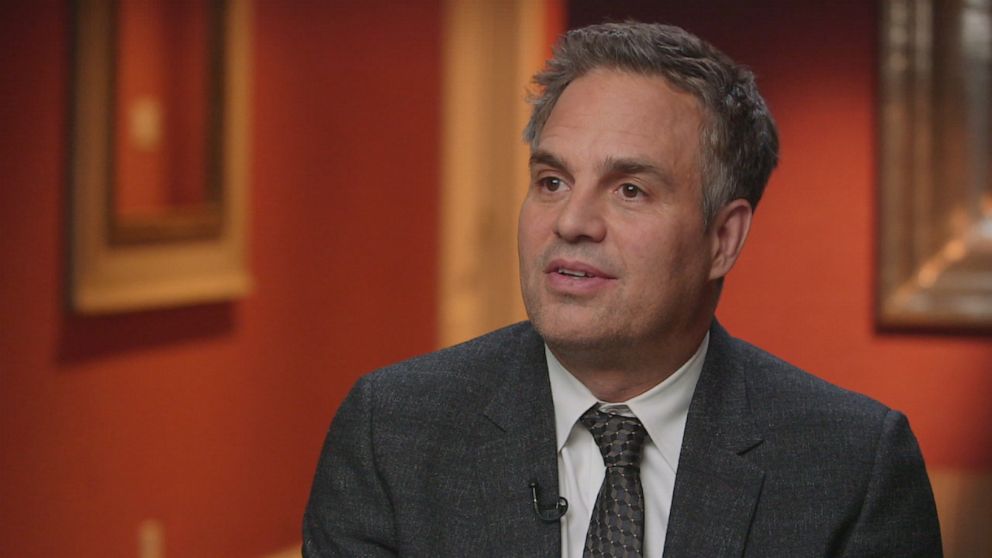'Dark Waters' star Mark Ruffalo, real-life attorney who fought chemical giant discuss environmental crisis affecting people across the country
Mark Ruffalo and Rob Bilott discuss true story of new film 'Dark Waters.'
Mark Ruffalo, the man behind the Marvel superhero the Hulk, is taking a new battle to Capitol Hill: sounding the alarm about harmful man-made compounds known as "forever chemicals."
"These chemicals don’t respect political boundaries. They’re found in the blood of people in Oatman, Arizona, and they’re found in the blood of people in Fargo, [North] Dakota," Ruffalo told Congress last week. "Who is paying for this failure to act? It’s people like Bucky Bailey, who’s here today. These are real people, guys."
While she was pregnant, Bucky Bailey’s mother worked in the DuPont chemical plant in Parkersburg, West Virginia, a plant where chemicals were mixed to make Teflon, a nonstick surface for pots and pans.
What his mother didn’t know was that while working there, she was exposed to a dangerous chemical known as PFOA, also known as perfluorooctanoic acid.
"She was working directly with the chemical while she was pregnant with me," Bailey said of his mother. PFOA is a toxin that has been found to have a probable link to certain types of cancers and diseases.

Bailey said he was born with just one nostril as well as a "serrated eyelid" on the right eye. "I have a keyhole pupil [and] limited vision in my right eye," he said. "It's more like peripheral vision the entire time."
"The doctors, they were just completely scared," Bailey said of the day his mother gave birth to him. "They said, 'Don't get your hopes up. He won't make it through the night.'"
The harmful effects of PFOA and its impact on the community in Parkersburg, West Virginia, may have never come to light if it wasn't for one attorney who decided to take the chemical company head-on in a 20-year legal battle.
His story, one of an underdog lawyer who took on the chemical giant DuPont on behalf of people like Bailey, is now the subject of the new film "Dark Waters."
In the film, Ruffalo plays Robert Bilott, a real-life corporate lawyer who switched sides to file repeated lawsuits against DuPont, accusing the company of causing devastation to the surrounding community.
Bilott first became aware of the issue when, in 1998, farmer Wilbur Tennant asked Bilott for help because his cattle were dying. Tennant suspected their deaths were related to the runoff from the DuPont chemical plant landfill near his property.
Desperate for help, Tennant made videos hoping to convince someone to take on DuPont -- a global conglomerate and one of the largest employers in his town of Parkersburg, West Virginia. Everyone turned him away, except Bilott.
"If you saw these animals with tumors, with black teeth wasting away, and they're standing in white, suddenly foaming water, and you could see it coming out of a landfill," Bilott said. "I mean, it was, to me at least, it was pretty obvious there was a problem here."
As shown in the movie, Bilott sued DuPont on behalf of Tennant. The lawsuit alleged that DuPont was dumping toxic chemicals and contaminating the water supply, killing dozens of Tennant's cattle. In the process, Bilott said he uncovered decades worth of evidence that the chemical giant was aware that the PFOAs in Teflon and other products were toxic.
"We were dealing with something that was not just affecting one family, one farmer and animals on one piece of property. I saw that this was a chemical that was in entire communities, [the] water supply and in the blood of the entire country. But nobody knew that," Bilott told "Nightline."

According to Bilott, DuPont’s internal documents revealed that the company failed to disclose the dangerous effects of producing Teflon for years while the company made the product.
"It was rather disturbing, frankly," Bilott said. "I kept rereading it and reading it over again, and thinking, you know, this really can't be what I'm reading. But it became clear that, yeah, you know, this was a chemical that was known to be toxic."
Tennant ultimately settled with DuPont and the company admitted no wrongdoing.
"They knew it was causing cancer in animals. By the 1980s, they knew it was in the drinking water of the community," Bilott said. "By the early 1980s, they'd even set their own internal standards of what's safe, even though the government regulators didn't know about it."
In a statement to ABC News, DuPont said: "Nothing is more important than the safety of our employees and the communities in which we operate… This movie misrepresents things that happened years ago, including our history, our values and science. In some cases, the film depicts wholly imagined events."
Bilott did not stop with the Tennant lawsuit. Knowing that DuPont had polluted the groundwater and potentially exposed thousands of people to a dangerous chemical, Bilott sued the chemical company repeatedly to uncover the truth.
Bilott said that "there were a number of moments" in which he believed the process would never end or end in defeat.
"Heroism is facing down [an] almost undefeatable enemy and not losing the courage that it takes to engage in a long, protracted struggle against that," actor Tim Robbins, who plays lawyer Tom Terp in the film, said of Bilott.

Bilott launched a class action lawsuit after alerting the EPA in 2001 that "DuPont continues to release an essentially unregulated, confirmed animal carcinogen" into the air, land and water, making the residents of Parkersburg sick.
That class action lawsuit grew to include 70,000 people, who for years had been wondering what was causing the health problems all around them.
Bilott’s legal battles helped focus worldwide attention to the wide variety of so-called "forever chemicals" that we’re exposed to on a daily basis.
Without admitting wrongdoing, DuPont settled the class action lawsuit for $70 million, part of which funded a scientific study that eventually found a probable link between PFOA and diseases like testicular cancer, kidney cancer and thyroid disease -- a disease that Bucky Bailey's mother now suffers from.
Initially, Bailey was part of the class action lawsuit, but he dropped out after his birth defect couldn’t be definitively linked to the PFOAs. It hasn’t stopped him from becoming a fierce advocate.
"I don't want money. I want peace of mind," Bailey said. "I want other people to have hope and faith that they can take a shower, they can take a drink of water from their water source and [that will] be clean water, and they can lay their children on the carpet."
In a statement to ABC News, DuPont said it does "not make the chemicals in question" and "agrees that further action needs to be taken." The company added that it's eliminating the use of all PFOAS-based firefighting foams and that it supports "innovative PFOAS remediation technologies."
Not only did Ruffalo star in the film, but he was also one of the producers for the film, merging his leading man status in Hollywood with his environmental activism.
Ruffalo said the line between those two life roles "is getting blurred."
"I know I believe in activism and I've taken part in a lot of it. But I also believe in storytelling," he shared. "I know the power of storytelling. It transcends politics."

Twenty years later, people today are still fighting and still getting diagnosed with cancer, Bilott said.
"It's being found in drinking water all over the country," Bilott said. "New communities are waking up almost every day to learn this is in our water and may have been there for a long time."
Since Bilott met with Tennant in 1998, DuPont has settled over 3,000 lawsuits related to the PFOA found in Parkersburg and paid out over $670 million without any admittance of wrongdoing.
Bucky Bailey, who plays himself in the movie, has had over 40 reconstructive surgeries on his face.
"There were some tough battles for sure growing up," Bailey said.
But now, the 38-year-old is married with two kids.
"It’s interesting to see just how it has shaped my life as a father of a 3-year-old and 7-month-old," Bailey said. "Now, [I’m] just wanting the best for them and wanting them to have success."
Bilott shared the message he hopes audiences will take away from the film: "Even one individual standing up could make a change. You know, somebody like Wilbur Tennant, who knew something bad was happening to his animals, to his family, to his community. You know, somebody like that standing up can take on even the biggest powers against him in the community. Coming together can make a huge difference."




